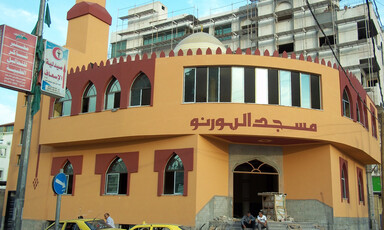
Tunnels prove vital in rebuilding Gaza mosques
Gaza City 17 October 2011
Israel is still restricting imports of material need to repair mosques bombed during Operation Cast Lead. Read more about Tunnels prove vital in rebuilding Gaza mosques

Gaza City 17 October 2011
Israel is still restricting imports of material need to repair mosques bombed during Operation Cast Lead. Read more about Tunnels prove vital in rebuilding Gaza mosques
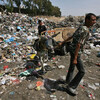
29 April 2008
JERUSALEM/GAZA, 28 April (IRIN) - The UN has stopped distributing food in the Gaza Strip as its main agencies have run out of fuel for vehicles. To make matters worse, many bakeries in the enclave were closed on 28 April as they had run out of gas. The World Food Program and the UN agency for Palestine refugees, UNRWA confirmed they had not delivered food aid since 26 April. Read more about Gaza food distribution halted, cooking gas running out
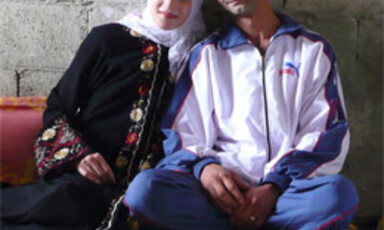
Nahr al-Bared refugee camp 15 January 2008
Ahmed and Liliane Hassan, who are 25 and 17, were supposed to marry in August, but instead were driven from their homes in Nahr al-Bared camp, along with up to 40,000 other people, by 106 days of fighting between the Lebanese army and militant group Fatah al-Islam. They were among several thousand Palestinians allowed to return from 10 October, and soon after tied the knot. Ahmed explained: “When we celebrated our engagement during the 2006 July War, the Israelis bombed Abdeh, on the edge of Nahr al-Bared and we ended up in the shelters. Then the fighting delayed our wedding.” Read more about "It felt like a kind of resistance to celebrate"
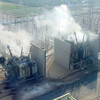
22 February 2007
The Gaza Strip in the Occupied Palestinian Territories continues to suffer daily power cuts eight months after Israel bombed its only power station, leaving health services relying on expensive generators and residents without regular electricity or water. The cuts have continued despite new transformers being installed in November 2006 at the privately owned Gaza Power Generating Company (GPGC) power station. All six of the original transformers were destroyed by Israeli warplanes days after Palestinian militants kidnapped an Israeli soldier last June. The cuts have left hospitals relying on diesel generators supplied with fuel financed by foreign donors. Read more about Gaza power supply under pressure
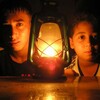
22 February 2007
The Gaza Strip in the Occupied Palestinian Territories continues to suffer daily power cuts eight months after Israel bombed its only power station, leaving health services relying on expensive generators and residents without regular electricity or water. The cuts have continued despite new transformers being installed in November 2006 at the privately owned Gaza Power Generating Company (GPGC) power station. All six of the original transformers were destroyed by Israeli warplanes days after Palestinian militants kidnapped an Israeli soldier last June. Read more about Gaza power supply under pressure
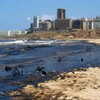
8 February 2007
Seven months after Israel bombed the coastal Jiyyeh power plant in the south of Beirut, the Mediterranean Sea still spews oil onto Lebanon’s shores, and beach sand shifts to reveal oil slicks that could not be detected before, fishermen say. With sparkling waves licking the golden sands, Jiyyeh beach looks pristine at first glance. But fisherman Ahmad Kojok stoops and pulls up the corner of a black slab in the sea. It is solid oil.
“We found another huge patch of oil over there,” said Kojok, waving towards a patch of sea by a rocky shelf that juts out into the bay. “It’s all oil just there.” Read more about Long-term environmental challenges ahead
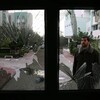
5 February 2007
Six United Nations agencies have warned that bloody street battles between rival Palestinian militant groups in the Gaza Strip are blocking the delivery of vital humanitarian aid to a vulnerable population. Fierce fighting between Hamas, the party of government, and Fatah, the party of Palestinian President Mahmoud Abbas, forced the UN Relief and Works Agency (UNRWA), which looks after Palestinian refugees, to shut schools for some 35,000 children on Saturday and suspend food delivery from its Gaza city warehouse. UNRWA provides food to 1.1 million of the 1.4 million people who live in the Strip. Read more about Gaza fighting threatening aid, says UN
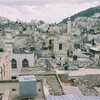
5 February 2007
Israeli moves to control movement in and out of the city of Nablus are thwarting humanitarian aid efforts and damaging the local economy, according to aid agencies and local residents. Israeli checkpoints surrounding the city of more than 200,000 people mean that no vehicle can leave or enter Nablus without an Israeli permit. The United Nations Office for the Coordination of Humanitarian Affairs (OCHA) said that such permits are difficult to obtain, particularly for Palestinians. Liz Sime, from the US-based global humanitarian organisation CARE International, said that, “[our] teams lose up to two hours each time they try to exit Nablus, raising costs at an unreasonable rate”. Read more about Israeli lock-down cripples Nablus economy
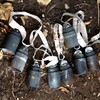
31 January 2007
Israel may have violated agreements regarding the use of American-made cluster bombs during its war in Lebanon in July 2006, the US State Department said on Monday. Spokesman Sean McCormack did not give details about the possible violations but said the results of a preliminary investigation were being forwarded to Congress. During the war, Israel used cluster munitions, possibly dropping one million such bombs, including in civilian areas. Many of the munitions - according to the United Nations, up to 40 percent - did not explode and now pose a hazard to residents of south Lebanon. Unexploded ordnance has killed at least 27 people and injured more than 143 since the war ended. Read more about US inquiry into use of cluster bombs
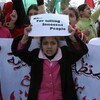
30 January 2007
Palestinians in Gaza say they have been trapped in their homes as deadly fighting between rival Palestinian militia groups had taken over the streets. Residents are hopeful that a truce on Tuesday morning between Hamas and Fatah would bring some form of normality back to their lives. At least nine civilians, including three children, are believed to have been killed during battles between supporters of these two main Palestinian factions, which have claimed 32 lives since Thursday and left more than 110 wounded. Read more about Civilians caught in the crossfire